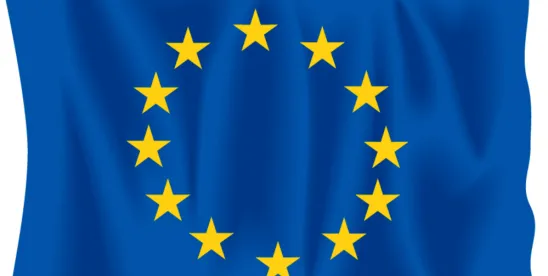Antitrust and Competition
European and UK Antitrust Enforcers Impose Fines Over End-of-Life Vehicles Recycling Cartel
On 1 April 2024, both the European Commission (the Commission) and the UK Competition and Markets Authority (CMA) fined major car manufacturers and trade associations for participating in a 15-year long cartel concerning end-of-life vehicle recycling. The Commission’s and CMA’s decisions highlight the authorities’ interest in pursuing novel theories of harm that may have an adverse impact on the green transition.
Financial Affairs
EU Institutions Finalize Omnibus I; EFRAG adopts Work Plan to Simplify ESRS
The European Parliament and the Council of the European Union finalized the legislative procedure for Omnibus I, while the European Financial Reporting Advisory Group (EFRAG) adopted the work plan detailing next steps for European Sustainability Reporting Standards (ESRS) simplification.
Commission Presents Savings and Investments Union
The Commission presented its Savings and Investment Union, outlining future legislative and nonlegislative initiatives to strengthen EU capital markets.
Sanctions
European Court of Justice Confirmed that the Ban on the Export of EU Banknotes to Russia Also Applies when the Money Is Intended to Finance Medical Treatments
The European Court of Justice ruled that only amounts strictly necessary for travel and basic living expenses may be brought into Russia.
Antitrust and Competition
European and UK Antitrust Enforcers Impose Fines Over End-of-Life Vehicles Recycling Cartel
On 15 March 2022, the European Commission (Commission) and the UK Competition and Markets Authority (CMA) conducted parallel unannounced inspections (dawn raids) at the premises of companies and trade associations active in the automotive sector in several EU member states and in the United Kingdom. On 1 April 2025, the Commission fined 15 major car manufacturers and a trade association a total of approximately €458 million for participating in a 15-year-long cartel concerning the recycling of end-of-life vehicles (ELVs), i.e., cars that are no longer fit for use, either due to age, wear and tear, or damage. On the same day, the CMA imposed fines against 10 car manufacturers and two trade associations of approximately £77.7 million for breaching UK competition law for a similar conduct affecting the UK market.
Both the Commission and the CMA found that the parties infringed EU and UK competition law by colluding on two aspects:
- Car manufacturers agreed not to pay car dismantlers for processing ELVs and shared commercially sensitive information on their individual agreements with car dismantlers. The car dismantlers were therefore unable to negotiate a price with the car manufacturers.
- The parties also agreed not to advertise how ELVs could be recycled, recovered, and reused, and how much recycled materials are used in new cars. The Commission stated that the car companies’ objective was to prevent consumers from considering recycling information when choosing a car, which could lower the pressure on companies to improve their environmental efforts and go beyond legal requirements on recyclability.
The Commission’s and CMA’s investigations involved trade associations that were found to act as a facilitator of the cartel by arranging meetings and contacts between car manufacturers.
Both investigations were triggered by a leniency application submitted by one of the cartel participants. As this participant has revealed the cartel, it was not fined and received full immunity from penalties. In addition, all companies admitted their involvement in the cartel and agreed to settle the case, which reduced the fine by 10% in the Commission’s investigation and 20% in the CMA’s investigation.
Teresa Ribera, executive vice president for Clean, Just and Competitive Transition, commented:
We will not tolerate cartels of any kind, and that includes those that suppress customer awareness and demand for more environmental-friendly products. High quality recycling in key sectors such as automotive will be central to meeting our circular economy objectives, not only to cut waste and emissions, but also to reduce dependencies, lower production costs and create a more sustainable and competitive industrial model in Europe.
The Commission also stated that this investigation was the largest settlement case it has concluded so far. This shows that the Commission can use the settlement procedure in exceptionally large settlement cases. Also, this parallel investigation illustrates the Commission’s and the CMA’s close coordination in investigating novel theories of harm that may have an adverse impact on the green transition.
Financial Affairs
EU Institutions Finalize Omnibus I; EFRAG Adopts Work Plan to Simplify ESRS
On 3 April, the European Parliament approved the text of the first part of the Omnibus package (Omnibus I). Omnibus I postpones the application date of the reporting requirements under the Corporate Sustainability Reporting Directive (CSRD) by two years for certain groups of companies, and it also postpones the transposition deadline as the first wave of application of the Corporate Sustainability Due Diligence Directive by one year. Members of the European Parliament (MEPs) largely supported the proposal: 531 voted in favor, 69 against, and 17 abstained. The pro-European political groups (the European People’s Party, the Socialists and Democrats, and Renew Europe) were able to reach an agreement to approve the content of the proposal a few hours before the votes. Further, the final text of Omnibus I was published in the Official Journal of the European Union on 17 April and is now in force at the EU level. The directive mandates member states to transpose it into national law by 31 December 2025.
In a related development, the European Financial Advisory Reporting Group (EFRAG) adopted its work plan on the simplification of European Sustainability Reporting Standards (ESRS) under CSRD. This review is part of EFRAG’s broader mandate to assess the entire ESRS framework, as set out in a mandate letter from Commissioner Maria Luís Albuquerque. EFRAG is expected to submit its technical advice to the Commission by 31 October 2025.
Now that the first part of the package is completed, MEPs and member states at the Council of the European Union are discussing internally their approach to the second part (Omnibus II), which introduces substantial simplification amendments to the obligations and requirements notably comprised in these two frameworks. Check this article for a summary of the proposed amendments by Omnibus II.
Commission Presents Savings and Investments Union
On 19 March, the Commission issued a Communication on the Savings and Investments Union, seeking to offer EU citizens broader access to capital markets and better financing opportunities for businesses. The strategy focuses on four key pillars: (i) citizens and savings, (ii) investments and financing, (iii) integration and scale, and (iv) efficient supervision in the single market. For each pillar, the Commission underlined both legislative and nonlegislative actions to be adopted throughout 2025 and 2026.
For citizens and savings, the Commission underlined that it would facilitate negotiations between the European Parliament and member states on the Retail Investment Strategy, but it will not hesitate to withdraw the proposal if the negotiations do not meet the objectives of the strategy. Key initiatives include a review of pension frameworks to bolster retail investor participation, a financial literacy strategy by Q3 2025, and a EU-wide framework for savings and investment accounts. For the investment and financing pillar, the Commission aims to facilitate equity investments by institutional investors, revise Solvency II criteria for long-term equity investments, and streamline securitization requirements by mid-2025, with additional reforms targeting private market liquidity due in 2026.
On integration and supervision, the Commission plans to reduce capital market fragmentation and enhance cross-border activity through emerging technologies such as artificial intelligence, simplifying rules for asset managers and potentially reviewing the Shareholders Rights Directive. In the context of capital markets integration, the Commission launched a public consultation to gather views on obstacles to financial markets integration across the European Union. On oversight, reforms to the European Supervisory Authorities could delegate supervisory powers to EU-level bodies, particularly for crypto services and large cross-border managers.
The Commission will conduct a midterm review of the strategy by mid-2027 to assess progress and refine initiatives.
Sanctions
European Court of Justice Confirmed that the Ban on the Export of EU Banknotes to Russia Also Applies when the Money Is Intended to Finance Medical Treatments
Under EU sanctions imposed on Russia, it is prohibited to sell, supply, transfer, or export banknotes denominated in any official currency of an EU member state to Russia or to any natural or legal person, entity, or body in Russia, including the Russian government and the Central Bank of the Russian Federation, or for use in Russia. Only three limited exemptions to this general ban exist: (i) export of banknotes for the personal use of natural persons traveling to Russia or members of their immediate families traveling with them, (ii) export of banknotes for the official purposes of diplomatic missions, or (iii) export necessary for civil society and media activities that directly promote democracy, human rights, or the rule of law in Russia.
In case C-246/24, Generalstaatsanwaltschaft Frankfurt am Main, delivered on 20 April 2025, the European Court of Justice addressed the situation where German customs officers discovered a passenger heading to Russia carrying nearly €15,000 in banknotes. The passenger stated the money was intended not only for travel costs but also for medical procedures in Russia, including dental work, hormone therapy for fertility, and follow-up care after breast surgery. Authorities confiscated most of the money, permitting the passenger to retain around €1,000 for travel-related needs.
The court ruled that carrying banknotes to Russia for medical treatment does not qualify as personal use under the exemption. The court reiterated that exceptions are to be interpreted strictly so that general rules are not negated. A broad interpretation of the exemption would result in a situation where it would be possible to transfer to Russia, without restriction, large sums of banknotes to make personal purchases of any kind there, and, moreover, it would be difficult to verify that such purchases are carried out.
The exemption in question is limited to covering costs directly related to the journey and stay—medical treatments do not fall within that scope, as the EU sanctions are ultimately intended to prevent the Russian economic system from gaining access to cash denominated in any currency of a EU member state to support Russia’s activities in the war in Ukraine.
Additional Authors: Petr Bartoš, Vittoriana Todisco, Kathleen Keating, Sara Rayon Gonzalez, Covadonga Corell Perez de Rada, Simas Gerdvila, Edoardo Crosetto, and Martina Pesci.









 />i
/>i
